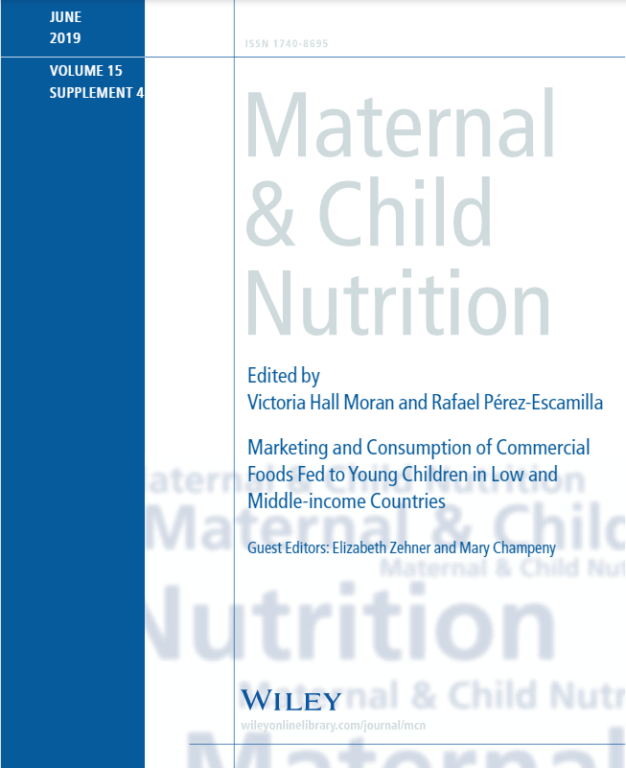This article was published in the Maternal & Child Nutrition Supplement: Marketing and Consumption of Commercial Foods Fed to Young Children in Low and Middle‐income Countries.
Access abstract in Khmer and French.
Abstract: Promotion of breast milk substitutes (BMS) and inappropriate marketing of commercially produced complementary foods (CPCF), including through television, can negatively influence infant and young child feeding. The World Health Organization International Code of Marketing of Breast‐milk Substitutes and subsequent relevant World Health Assembly (WHA) resolutions prohibit such advertising and require manufacturers and distributors to comply with its provisions; however, such regulations at national level may vary. Advertisements require Ministry of Health approval in Cambodia but are not regulated in Senegal. Television stations were monitored for 13 months in Phnom Penh and for 3 months in Dakar to assess advertisements for BMS and CPCF. Ten television channels (out of 16) in Phnom Penh and four (out of 20) in Dakar aired advertisements for BMS. Three and five channels, respectively, aired advertisements for CPCF. All BMS advertised in Phnom Penh were for children over 1 year of age. BMS products for children 6+ months of age and 1+ years of age were advertised in Dakar. Average air time for BMS advertisements was 189.5 min per month in Phnom Penh and 29.7 min in Dakar. Air time for CPCF advertisements averaged 3.2 min per month and 13.6 min, respectively. Fewer than half of BMS advertisements and three quarters of CPCF advertisements explicitly stated an age of use for products. Nutrition and health claims were common across BMS advertisements. This study illustrates the need to adopt, regulate, monitor, and enforce legislation prohibiting BMS promotion, as well as to implement regulations to prevent inappropriate promotion of CPCF.
Authors: Mary Champeny, Kroeun Hou, Elhadji Issakha Diop, Ndeye Yaga Sy Gueye, Alissa M. Pries, Elizabeth Zehner, Jane Badham & Sandra L. Huffman
View Resource
